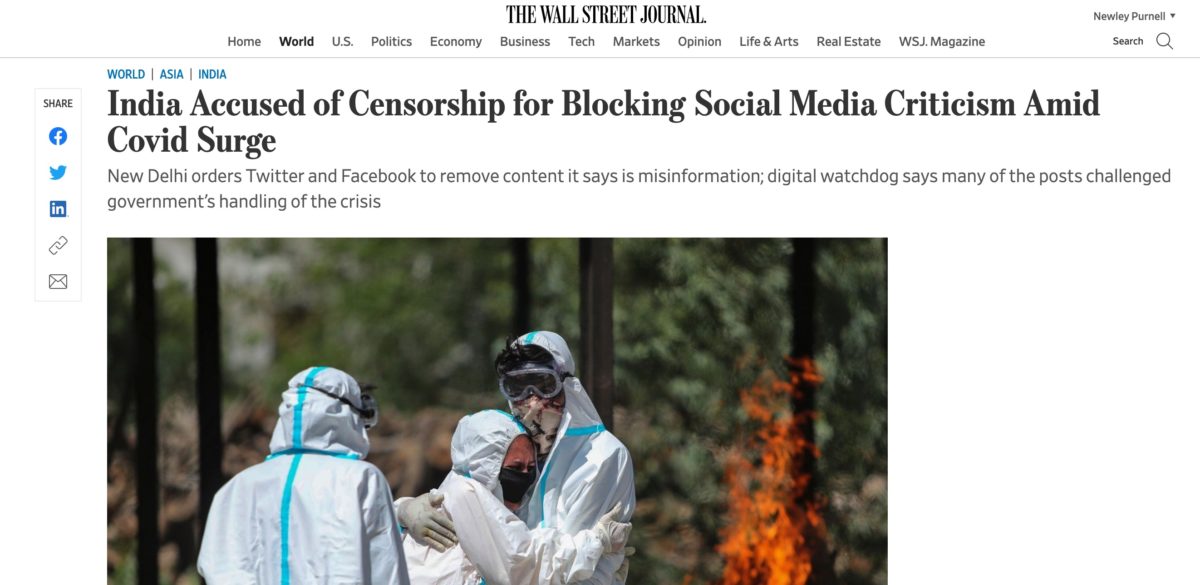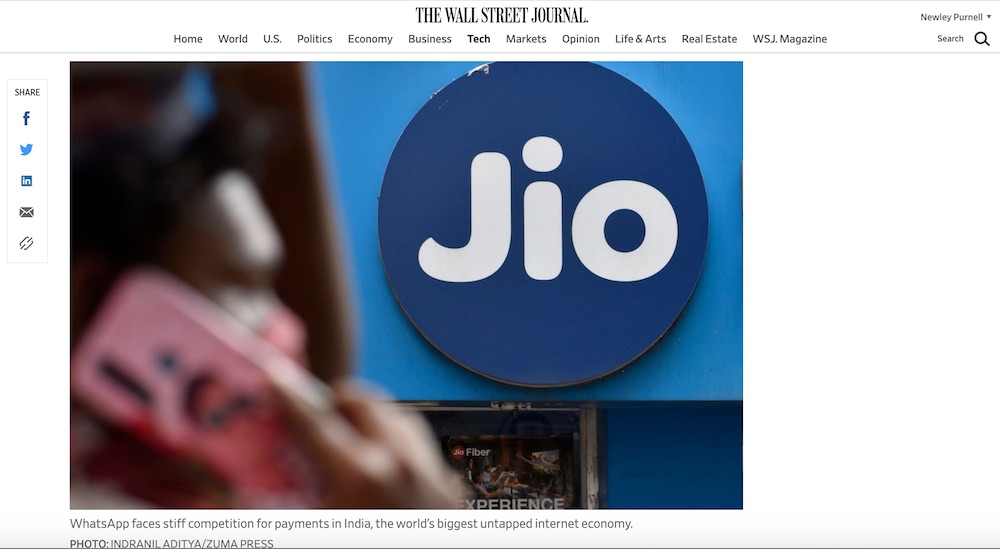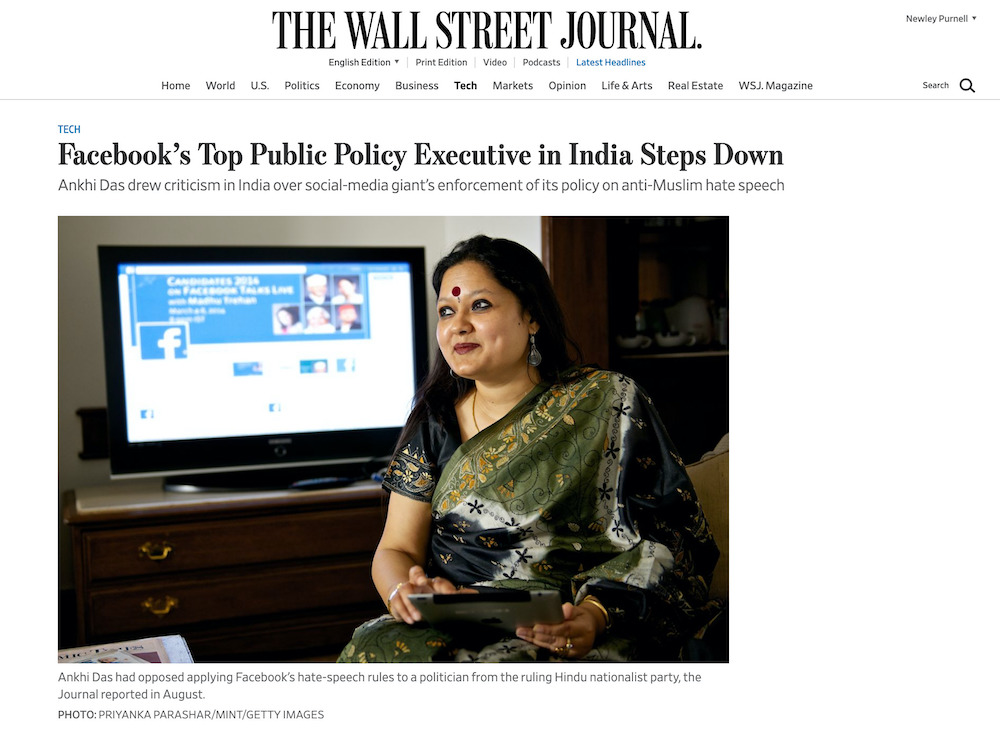
Sent as an email newsletter Wednesday, September 9. Not a subscriber yet? Get it here.
👋 Hi friends,
Welcome to the latest edition of Newley’s Notes, a weekly newsletter containing my recent Wall Street Journal stories, must-read links on tech and life, and funny dog videos.
Photo of the week, above: table for four, Hong Kong. Spotted on a recent evening.
🆕 If you missed it, my latest story on Facebook and India, out Thursday with my colleague Jeff Horwitz: Facebook, Under Pressure in India, Bans Politician for Hate Speech. It begins:
Facebook Inc. banned a member of India’s ruling party for violating its policies against hate speech, amid a growing political storm over its handling of extremist content on its platform.
The removal of the politician, T. Raja Singh, is an about-face for the company and one that will be politically tricky in India, its biggest market by number of users.
The Wall Street Journal reported last month that Facebook’s head of public policy in the country, Ankhi Das, had opposed banning Mr. Singh under Facebook’s “dangerous individual” prohibitions. In communications to Facebook staffers, she said punishing violations by politicians from Prime Minister Narendra Modi’s party could hurt the company’s business interests in the country.
And a re-cap of our previous stories on the topic, if you missed them:
🚨 Administrative note: There will be no NN next week. I’ll be back the week of September 20.
Here are ten items worth your time this week:
📪 1) The U.S. presidential election is in 55 days. Many people are expected to submit their ballots by mail due to Covid–19. Here’s a rundown of how to vote by mail in every state.
👨💻 2) Silicon Valley tech firms are finding ways to help parents take care of their kids amid the pandemic. Childless workers say they’re being treated unfairly.
🌲 3) In Chicago, Amazon drivers are hanging their smartphones from trees near delivery stations to try to collect delivery orders faster.
🧘 4) Longread of the week: “The Eco–Yogi Slumlords of Brooklyn.”
🇸🇳 5) Senegal, “with a population of 16 million, has tackled COVID–19 aggressively and, so far, effectively. More than six months into the pandemic, the country has about 14,000 cases and 284 deaths.”
🎥 6) Netflix is making “The Three-Body Problem,” the popular trilogy of sci-fi books by China’s Cixin Liu’s, into an English-language series.
🙅♂️ 7) And speaking of Netflix, founder Reed Hastings is no fan of working from home. “Not being able to get together in person, particularly internationally, is a pure negative,” he told my WSJ colleague, Joe Flint, in an interview.
👏 8) Excellent Twitter thread: “Civil War generals as Muppets.”
🔉 9) Sounds of the Forest: “We are collecting the sounds of woodlands and forests from all around the world, creating a growing soundmap bringing together aural tones and textures from the world’s woodlands.”
🐕 10) Dog related video of the week: “Every morning at the same time a sweet stray angel visits this cafeteria to get her daily dose of love and food.”
•••
💡 Quote of the week:
“Progress, not perfection, is what we should be asking of ourselves.” – Julia Cameron.
•••
👊 Fist bump from Hong Kong,
Newley









